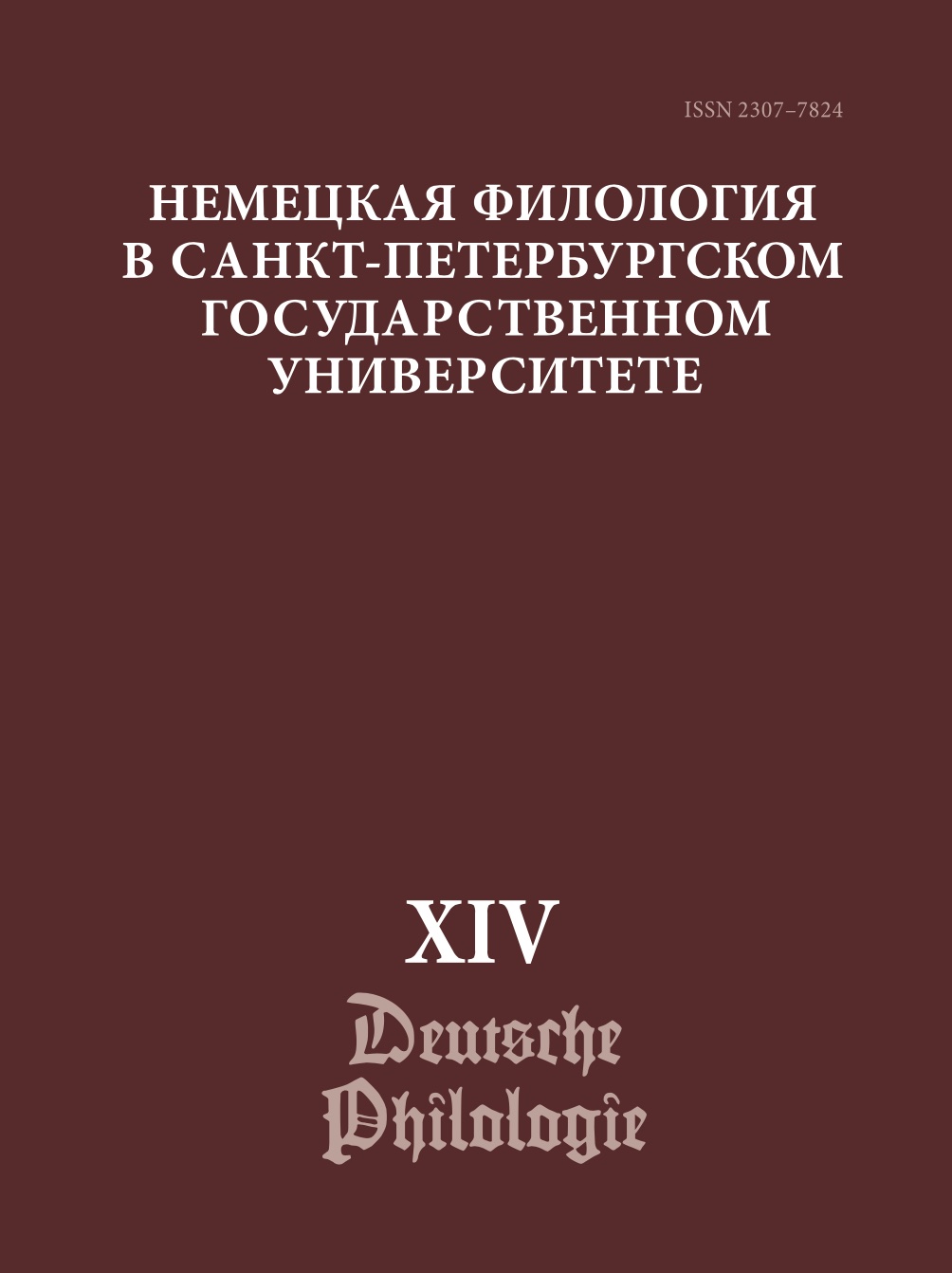TO THE QUESTION OF MODELING THE SUBJECT STRUCTURE OF GERMAN LANGUAGE AUTHOR ENIGMATIC TEXTS OF THE 18TH–20TH CENTURIES
DOI:
https://doi.org/10.21638/spbu33.2024.109Abstract
The study of the corpus of German-language author’s enigmatic texts of the XVIII–XX centuries has allowed us to reveal their text-typological features, which consist in the ways of expressing the subject and address plans. The binominal structure, represented by the enigmatic part (enigmator) and the answer, conceals the special potential of enigmatic texts in the realisation of various functions. The polyfuctionality of enigmatic texts opens new perspectives in the study of these texts. In the centre of our scientific interest are the types of the subject of speech and the ways of his interaction with the enigmatic object and the addressee. The types of the subject of speech (enigmatic narrator, explicit narrator, implicit narrator, mixed type of the subject of speech) realise their pragmatic potential in different types of the subject structure of enigmatic texts. It is the subject of speech that acts as a criterion for classifying the texts under study according to the type of their subjective structure. When identifying the subject of speech, the authors of this paper rely on analysing the means of addressability at the lexico-grammatical, intertextual and paratextual levels and take into account such ways of expressing addressability as various vocatives, statements with inductive modality, intertexts and paratextual elements. The novelty of the study consists in the identification and description of the types of the subject of speech of the author’s enigmatic text, taking into account the peculiarities of their pragmatic load. The presented conclusions were obtained with the help of comparative, structural-semantic, interpretative and contextual methods, as well as the modelling method.
Keywords:
enigmatic text, pragmatic potential, enigmat, enigmator, subject of speech, means of addressability, subject structure of the text, modelling
Downloads
References
Литература
References
Downloads
Published
How to Cite
Issue
Section
License
Условия передачи авторских прав на статьи и рецензии, опубликованные в ежегодном периодическом издании «Немецкая филология» регулируются условиями Лицензионного Договора автора с Санкт-Петербургским государственным университетом. В соответствии с Лицензионным Договором опубликованные материалы находятся в открытом доступе, а авторам бесплатно предоставляется неограниченные возможности их распространения и самостоятельного архивирования.




